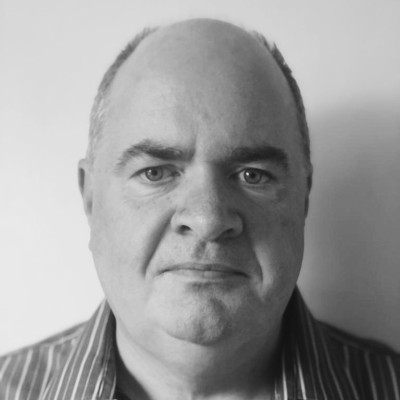mars 9, 2022
Ectin Research new CMO: ‘We’re seeing a real renaissance in repurposed drugs’
At the end of January 2022 Ectin Research announced the appointment of a new Chief Medical Officer (CMO) – Dr. Austin Smith, a medical oncologist with extensive experience in senior clinical and strategic roles in both oncology and drug development. Today Dr. Austin Smith reflects on the current rise of repurposed drugs, particularly within oncology, and the implications for MFA-370, Ectin Research’s novel cancer therapy for urothelial bladder cancer.
“Repurposing drugs, so that an ‘old’ drug might work on a ‘new’ condition, has always been with us,” says Ectin Research’s new CMO Dr. Austin Smith, “but the last decade has seen a real renaissance in repurposing. Every year from 2015 the global market for repurposed drugs has increased by approx. 1 BUSD. The number of research papers published on the subject has increased tenfold – from 25,000 a year in 2012 to almost 250,000 in 2019.”
So what is driving this increase? And what are the market and medical benefits? “A crucial driver is the rise of Artificial Intelligence and supercomputing,” Dr Austin Smith explains. “With today’s computational power we can put the data from thousands of existing papers together and make a biological model simulating the drug’s pathways. We’re rapidly accelerating our understanding of the molecular pharmacology of compounds all the time.”
INCREASED SPEED OF DEVELOPMENT
For drug developers, repurposed drugs offer increased speed of development, and reduced costs and risk. “As repurposed drugs have already been approved, they can often jump straight to phase II in clinical development,” says Dr Austin Smith. “In the US in particular the FDA’s 505(b)(2) Regulatory Pathway can massively reduce the amount of regulatory work and the time of development.”
REDUCED COST, REDUCED RISK
Whilst development time and costs vary from repurposed drug to repurposed drug, overall, Dr. Austin Smith says, repurposing does significantly reduce costs and risk for drug developers: “It can cost from 200 MUSD to 1 BUSD to develop a new drug from start to finish. A repurposed drug can be developed for around 20 MUSD in a fraction of the time. A new drug typically takes from 12 to 15 years to develop, compared to 4 to 5 years for a repurposed drug.”
|
NEW PHASE DRUG
|
REPURPOSED DRUG |
| COST: 200 MUSD – 1 BUSD
TIME: 12 – 15 yrs
PERCENTAGE APPROED: 5% |
COST: 20 MUSD
TIME: 4 – 5 yrs
PERCENTAGE APPROVED: 33%
|
Approx. 33% of repurposed drugs eventually achieve regulatory approval, says Dr Austin Smith, compared to approx. 5% of new phase drugs. “Very few drugs that gain approval actually recoup all their original costs,” Dr Austin Smith points out. “The time and cost savings, plus the adaptation potential of repurposed drugs, is exceptional.”
CANCER A KEY FOCUS AREA FOR REPURPOSED THERAPIES
Repurposing has had a large impact on oncology. 50% of repurposed drugs are for the treatment of cancer, from ‘soft’ repurposed cancer therapies, repurposed from one cancer indication to another (such as trastuzumab which originally treated metastatic breast cancer but was then used for gastroesophageal junction (GEJ) cancer) to ‘hard’ repurposed therapies, developed to treat conditions different from their original target indication – such as Bacillus Calmette-Guérin (BCG) vaccine, first used for TB, then repurposed for bladder cancer as well as being trialled for colorectal cancer and as an adjunct therapy for colon cancer.
Dr. Austin Smith: “Our understanding of how existing drugs work is improving all the time because we are able to better track and match data from multiple sources – from peer-reviewed papers, medical case reports, observational studies, clinical trials, patient groups and forums. This means we can fit more of the pieces of the puzzle together to better describe and model the relevant molecular pathways in a cancer cell, and where its Achilles heels may be.”
“In my experience some investigators always prefer the very latest, newest compounds. But as long as they can see benefit for the patient – so that we can show the right preclinical information, then they are more than willing to try. More and more repurposed drugs are coming through and more people  are beginning to understand just how much untapped potential there is in so many existing therapies.”
are beginning to understand just how much untapped potential there is in so many existing therapies.”
Dr Austin Smith is a Pharmacuetical Physcician and Medical Oncologist, with a special interest in early phase drug development. A graduate of the Royal College of Physicians of Ireland, he has occupied an extensive range of senior clinical and strategic positions within oncology.

 are beginning to understand just how much untapped potential there is in so many existing therapies.”
are beginning to understand just how much untapped potential there is in so many existing therapies.”